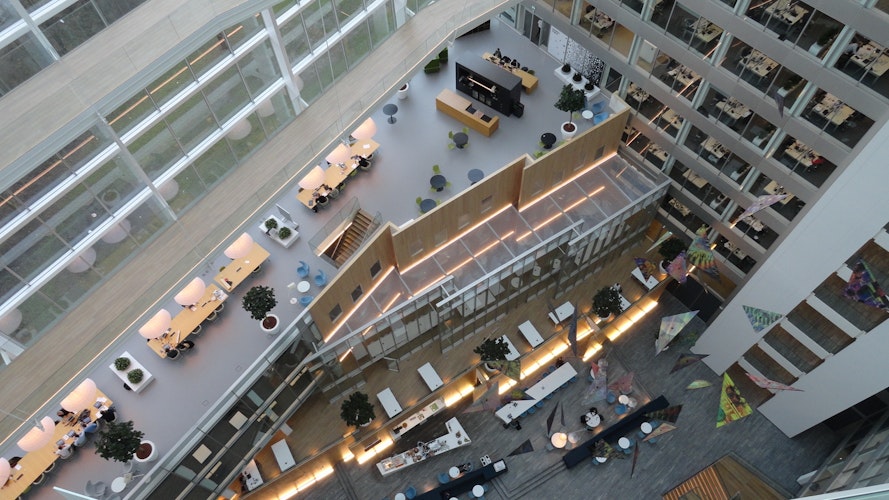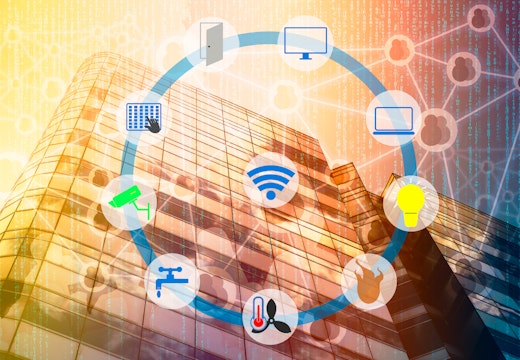Think a building can’t be smarter than you? Think again…
Technology is getting smarter, but how does this affect the buildings we work in? The Edge in Amsterdam takes intelligence to a new level and points to a smarter future
We’re surrounded by smart technology and gadgets – smartphones that can turn on the heating in your home before you get there, smartwatches that track how many steps you take each day and even a smartkettle (although the kettle’s intelligence is up for debate to judge from a recent report of a man who spent 11 hours trying to make a cup of tea with a wi-fit kettle ).
Since statistically we will spend around 30 per cent of our lives at work, it seems only logical that smart buildings are the next step. Many workplaces are already adopting smart elements, such as meeting room booking systems with sensors that show if the room is occupied, or iPad check-in devices to record all occupants.
The Edge takes it further
A new building in Amsterdam has taken this one step further and has become the smartest building in the world. The Edge, home to global consulting firm Deloitte, is possibly even smarter than you.
All employees at The Edge are given a smartphone app that begins working as soon as you wake up. It will understand your schedule for the day, direct your car to a parking spot when you arrive, and then find you a desk. You won’t even need to adjust the lighting – the app will do this for you – it knows your preferences and will alter the environment accordingly.
Understanding occupants
The building has 28,000 sensors and is continually collecting data on the occupants – from when coffee machines are used and need to be refilled, to how often the hand dryer is used so cleaners know it’s time for the bathroom to be cleaned.
This, of course, is the ultimate use of the technology and not every business will be fortunate enough to go that far. But there’s no denying that smart buildings really do seem to be the future, and the use of sensors in a building to collect data can help companies better understand their people, improve productivity and save costs in the long-term.
Saving floor space and money
By tracking how many people are currently in the building and which rooms are being used, energy control can be better controlled, leading to smaller energy bills and therefore significant cost savings. Hot-desking with a desk-booking system means that a company can dramatically cut down on the amount of floor space needed.
For example, in The Edge, 2,500 workers share just 1,000 desks. Many employees do not need to be in the office all the time, therefore they don’t require a static desk – introducing hot-desking means fewer desks taking up less space, and so less money spent on renting a bigger workspace than necessary.
The smart office of the future is on the way – and it may just be more intelligent than you think.








